Research
To achieve our mission, we at Department of Systems Innovation are committed to research activities in the following four priority areas and one project.

- Priority1
- Networking for
Artifact

- Priority2
- Global Circulation
System

- Priority3
- Socioeconomic
System

- Priority4
- Design of Advanced
Knowledge

- Project
- Service
Design
Priority1 Networking for Artifact
We carry out education and research in engineering for creating new values for system of systems engineering that consists of a large number of human-made objects. For this purpose, we will build up a new perspective for manufacturing activities by establishing a new methodology to manage various factors such as total optimization, life cycle as well as design/production and operations of specific elements in a more advanced manner.
Keywords
- System of systems;
- system planning;
- system design and development;
- life cycle design;
- life cycle management;
- life cycle monitoring;
- maintenance engineering;
- life prediction;
- safe and secure technology;
- eco design;
- process management;
- process reengineering;
- SCM;
- value chain;
- functional materials;
- development of new materials;
- sensor networking
Priority2 Global Circulation System
Dealing with a global circulation system consisting of circulation of resources, energy, humans and products, information, value, services and others, we will present education and research on a global and high added-value circulation system that ensures symbiosis among nature, human, society and human-made objects. Our education and research will serve to comprehend all these factors involved in circulation with multilateral and panoramic viewpoints.
Keywords
- Sustainability;
- recycle;
- reuse;
- reduce;
- zero emission;
- global design and production system;
- logistic and transportation system;
- energy system;
- environment and energy policy;
- waste processing;
- conservation and purification;
- earth monitoring;
- use of outer space and marine;
- resource circulation;
- hydrological circulation
priority3 Socioeconomic System
Based on knowledge of human cognition, psychology and decision-making as well as knowledge of mathematics of social and economic phenomena, we define human behavior. With this definition, we conduct education and research in engineering that will consequently realize a vital and affluent society as well as institutional and functional design of socioeconomic system by making good use of computer simulations.
Keywords
- Human behavior science;
- cognitive psychology;
- human modeling;
- social psychology;
- social engineering;
- mathematical sociology;
- social simulation;
- econophysics;
- experimental economics and sociology;
- artificial market;
- design of institutions;
- consensus building;
- communication design;
- community-ware;
- social network system;
- administration system;
- medical system;
- social welfare system;
- insurance system;
- education system;
- sales system
Priority4 Design of Advanced Knowledge
With extensive use of the latest scientific knowledge and most advanced engineering innovations, we can expect to create innovative systems with new functions by reconstructing the existing systems from the ground up. In this context, we pursue education and research on methodologies of systems innovation as the result of applying engineering knowledge generated at boundary regions between advanced engineering knowledge and other fields as well as by means of combining different kinds of engineering knowledge to generate new kinds of engineering knowledge.
Keywords
- Complex systems science;
- evolutionary computation;
- emergent system;
- multi-agent;
- gaming;
- network system;
- multi-scale and multi-physics simulation;
- MPS method;
- free mesh method;
- high performance computing;
- grid computing;
- life knowledge computing;
- quantum computing;
- high performance sensing;
- intellectual simulation;
- brain science;
- psychophysics;
- decision-making;
- brain-machine interface;
- identification of chance/risk;
- text mining;
- knowledge mining;
- knowledge management
Project Service Design
In accordance with diversification and evolution of service, we are entering a new era in which we must consider the functions of diversified values such as personal values or values of the whole society as such, not only the conventional economic function. We pursue education and research for creating knowledge of service evaluation methods, service modeling and simulation for appropriate designing of multi-value generating service as well as for optimization of service system and creation of innovations.
Keywords
- Service science;
- service engineering;
- requirements engineering;
- kansei engineering;
- value design;
- service modeling;
- creative communication;
- universal design;
- project management;
- contents design;
- physical-based CG;
- visualization;
- media design;
- education service;
- medical and welfare service;
- government service





